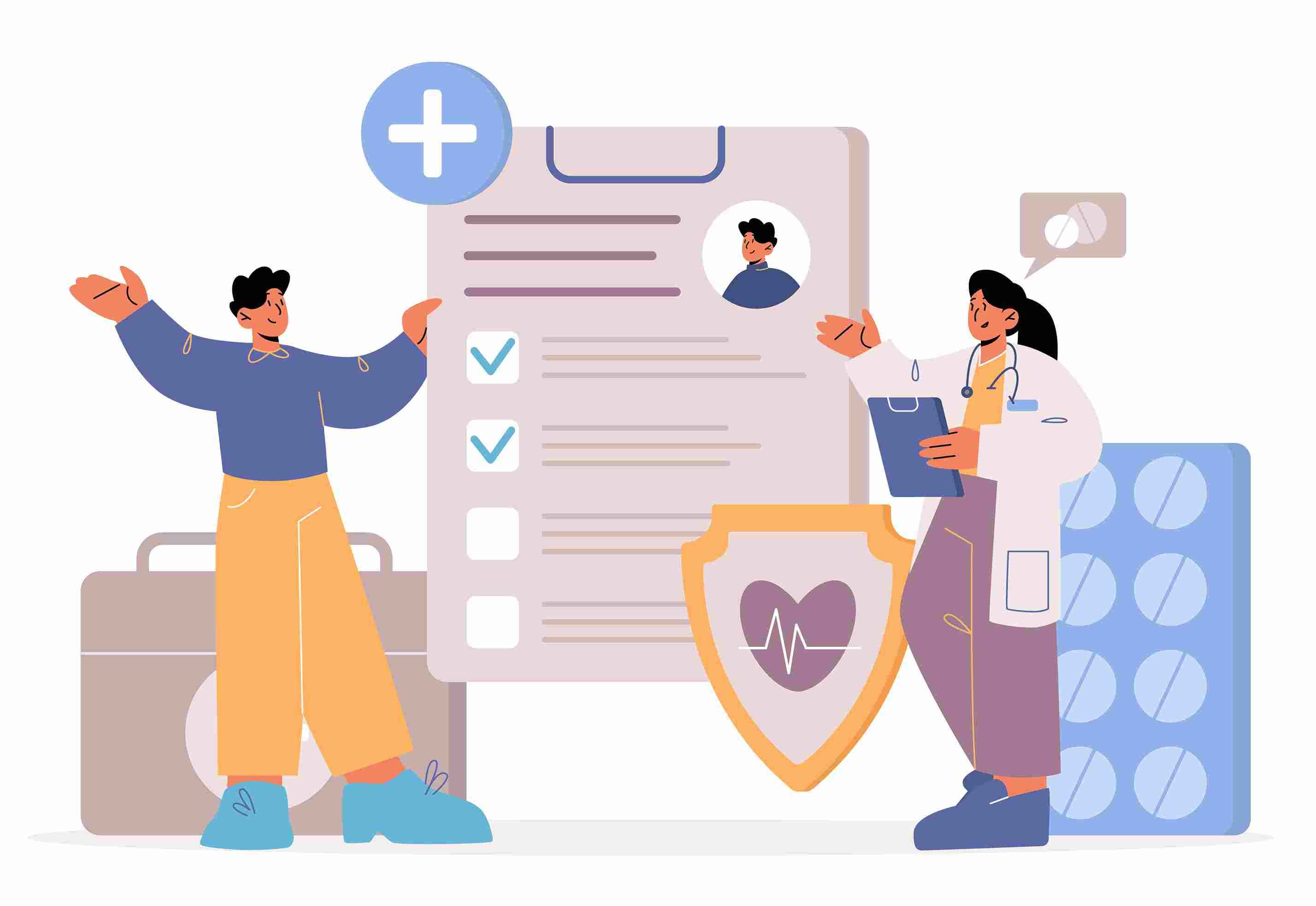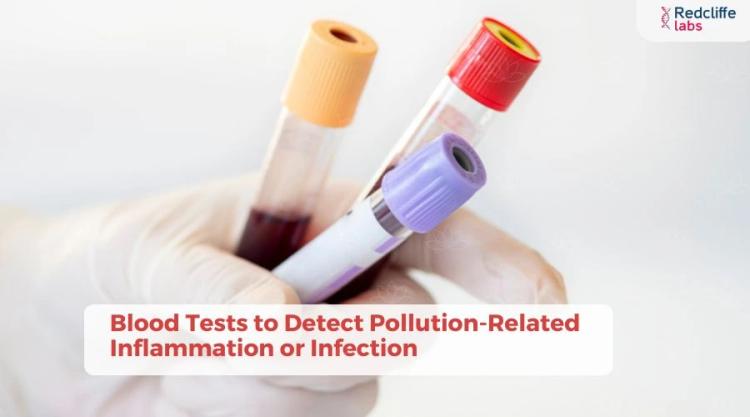Reasons why you Should Go for Health Checkups During Monsoon

Medically Reviewed By
Dr Divya Rohra
Written By Kirti Saxena
on Jul 15, 2023
Last Edit Made By Kirti Saxena
on Jan 9, 2025

We all wait for the rainy season with much happiness and enthusiasm. After all, it is everyone's favorite season. But with all joy, the season comes with many diseases and viral infections. After a blazing summer, when the monsoon hits the cool showers, don't forget it comes up with dreadful conditions.
However, these infections and viruses may cause numerous health issues, such as fever, flu-like symptoms, and gastrointestinal problems. So taking necessary precautions to avoid health issues and enjoy the rain becomes integral.
Common diseases during the rainy season
Compared to other seasons, the monsoon is always at high risk of exposure to viral, bacterial, and other infections. The reason behind this is heavy rainfall, increased humidity, and stagnant water. Here are some common diseases that can frequently outspread during the monsoon season:
- Malaria: Mosquitoes thrive in the stagnant water left behind by heavy rains, raising the risk of malaria transmission. Take preventive actions, such as using mosquito nets and repellents and eliminating mosquito breeding sites.
- Dengue Fever: Dengue is another mosquito-borne viral disease. Take necessary precautions such as mosquito control, protective clothing, and avoiding mosquito bites.
- Chikungunya: Like dengue, chikungunya is also transmitted by the Aedes mosquito. It causes symptoms such as high fever, joint pain, and rash. Mosquito control and protection are crucial for prevention.
- Leptospirosis: Leptospirosis is a bacterial infection that may be caused by exposure to contaminated water through cuts or wounds. The only prevention to avoid this disease is to sustain good hygiene.
- Typhoid fever: Poor sanitation and contaminated water supplies easily transmit typhoid fever during the monsoon season. Maintain good monsoon hygiene practices and drink safe, treated water to minimize the risk.
- Other common infections: Contaminated food and water can lead to gastrointestinal disorders such as diarrhea, cholera, and food poisoning; fungal infections like athlete's foot, ringworm, and fungal skin infections; and respiratory infections such as cold, flu, and pneumonia. Practice proper personal hygiene to restrain these infections.
How to prevent diseases in the rainy season?
Preventing diseases during the rainy season is essential to maintain good health. Following these healthy tips during the rainy season can reduce the risk of infections and let you enjoy a healthier rainy season.
- Maintain proper monsoon hygiene: Viral infections are the most common concerns during monsoon season, which can be prevented by maintaining appropriate hygiene. Wash your hands properly every time you eat after coming from outside, wash fruits and vegetables thoroughly before consumption, and sanitize your hands after coughing and sneezing.
- Avoid street food: Stay away from junk food and follow healthy eating habits. Taking a vitamin and mineral-rich balanced diet, staying physically active, getting enough sleep, and managing stress can keep you healthy and strong and also boost your immunity.
- Avoid stagnant water: Rainy season brings waterborne diseases. Keep your living space clean and free from stagnant water, which can become a breeding ground for mosquitoes and other disease-causing organisms.
- Safe drinking water: Take care that your water is safe and free from contaminants. Always drink boiled or filtered water, especially in the rainy season.
- Mosquito control: Prevent mosquito breeding by eliminating stagnant water around your home, such as flower pots, discarded containers, and gutters.
- Avoid close contact with infected people: If someone around you is sick and has symptoms like flu or cold, try to maintain distance and practice good hygiene.
- Personal protection: Use appropriate protective gear, such as umbrellas or raincoats, to shield yourself from rainwater. Stay up to date with your immunization, especially during the rainy season. Consult with Redcliffe Labs professionals to determine which vaccinations are appropriate for you.
- Seek medical help: If you experience any symptoms of infection, such as fever, cold, headache, cough, or gastrointestinal issues, seek prompt medical attention. Early diagnosis and appropriate treatment can help prevent the progression of diseases. Choose Redcliffe Labs for free home sample pickup and accurate reports at affordable prices.
Test to take during monsoon
Your doctor may advise different fever profile blood tests based on the symptoms. Choose Redcliffe Labs, your trusted diagnostic lab partner, to get tested with ease and to find the accurate root cause of your health issues. Here are some of the most common fever panel tests you can go for if you have had a fever for the last two-three days.
- Dengue Fever NS1 Antigen Test: The test is recommended by doctors if you have a high-grade fever, body aches, back pain, dizziness, etc.
- Malaria Antigen Test: Malaria is an infectious disease transmitted to the body by mosquito bites caused by the Plasmodium parasite. The common symptoms like severe headaches, shivering and body pain can be noticed if you have Malaria.
- Widal Test: The test is recommended when you are suspected of having Typhoid. It is caused by the bacteria Salmonella Typhi, present in contaminated food or water. Symptoms include high fever, headache, constipation, diarrhea etc.
- Chikungunya IgM Test: Doctors advise this test if you have chikungunya. It is a viral infection transmitted by mosquito bites. The symptoms may include fever, joint pain, rashes, and headache.
- Hepatitis A IgG Antibody: Hepatitis A is a liver inflammation caused by the hepatitis A virus (HAV). The virus is transmitted by consuming contaminated food and water. The symptoms may include fatigue, fever, joint pain, loss of appetite, vomiting and diarrhea.
Read our other blog on Unmasking Common Monsoon Diseases & Precautions: - https://redcliffelabs.com/myhealth/health/unmasking-common-monsoon-diseases-precautions/Why do you need a health checkup in monsoon?
Diseases such as cholera, Malaria, and dengue fever are serious and can be fatal. However, if you are trying to figure out the cause of your fever, then you must go for a test- Fever package- comprehensive. Preventive health checkups can provide a thorough picture of your overall health. With Redcliffe Labs, you won't even have to leave your house, as experienced phlebotomists will come to your home for blood collection. The experts perform the test securely at home. All you have to do is book an online appointment, enter your location and professional phlebotomists from Redcliffe Labs will be at your door. You will get accurate reports within 24 hours, and all your health needs will be addressed.



